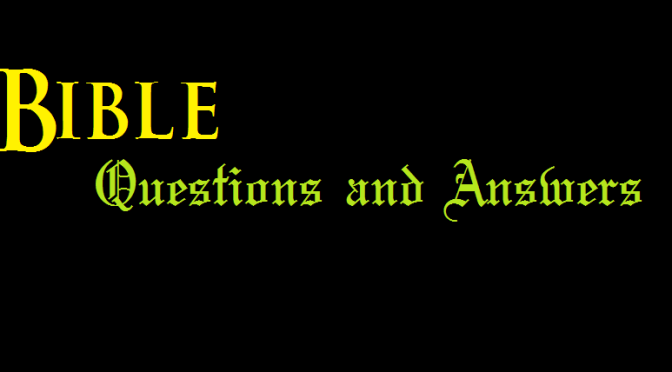This is the first of what will (Lord willing) be an ongoing feature of TheCobbSix.com. We plan on posting a new Bible Q&A each Friday. Now, on to the question!
Why is God called “The Lord of Sabaoth” (James 5:4, Romans 9:29)? I’m sure it means something, but I’m not sure what.–Anonymous
That’s a great question, and the answer may not be what you expect. The word Sabaoth only appears twice in the Bible, James 5:4 and Romans 9:29. Many people look at the word Sabaoth, and assume it is another spelling of the word Sabbath. And so, most people just think that this is another way of saying “Lord of the Sabbath,” like in Matthew 12:8, Mark 2:28, and Luke 6:5. But just because the words look similar doesn’t mean they’re the same thing.
The word Sabaoth means armies. The best way to show this is to look at one of the places where it is used. Romans 9:29 says, “And as Isaiah said before, ‘Except the LORD of Sabaoth had left us a seed, we’d been like Sodom and made like Gomorrah’.” Here, the apostle Paul quotes from Isaiah 1:9. Except that, in Isaiah 1:9, it says “the LORD of hosts.”
“The Lord of Sabaoth” in the New Testament is the same as “the LORD of hosts” in the Old Testament.
In the Old Testament, the phrase “the LORD of hosts” appears 245 times. This phrase describes God as the one who has the power to destroy anyone who gets in His way. It means He’s the military God who can control the armies of heaven and earth. When you understand this, and understand what was meant when God is called “the LORD of hosts,” it helps you get a better picture of what’s going on in the Bible.
“For thus says the Lord of hosts, the God of Israel: ‘As My anger and My fury have been poured out on the inhabitants of Jerusalem, so will My fury be poured out on you when you enter Egypt. And you shall be an oath, an astonishment, a curse, and a reproach; and you shall see this place no more.’” (Jeremiah 42:18).
Do you see there how God identifies Himself as “the LORD of hosts” right before He promises to bring destruction? Now, let’s go back to the New Testament and look at the other place where “the Lord of Sabaoth” is mentioned: James 5:4.
“Behold, the wages of the laborer who have reaped down your fields (which you have kept back by fraud) cries, and the cries of the reapers have entered into the ears of the Lord of Sabaoth.”
Here, God is telling the ones who were oppressive to the poor that the God of destruction is coming. He’s heard the cries of the poor. And if you read the whole chapter, you’ll see that it was going to be bad. Just a few years after this was written, Jerusalem was destroyed, and the people who had been oppressing the poor Christians were killed or made into slaves by the Roman armies, led by God.
–Bradley Cobb
